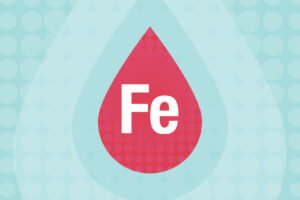Good nutrition is the cornerstone of a strong immune system.
Although no specific food or supplement can guarantee protection from illnesses like the coronavirus, a balanced, healthy eating plan is certainly one way to boost your immune system.
Certain nutrients play an important role in the immune system, and are abundant in the foods we eat:
Protein plays a crucial role in healing and recovery and is found in both animal and plant-based foods. Consume a variety of protein foods like seafood, poultry, lean meat, eggs, milk, yogurt, beans and peas, lentils, soy products, and unsalted nuts and seeds.
Vitamin A helps to protect against infections by keeping the skin and tissues in the mouth, respiratory system, stomach, and intestines healthy. This vitamin can be found in sweet potatoes, carrots, spinach, broccoli, red bell peppers, apricots, eggs, and foods like milk and some cereals that are labeled “vitamin A fortified.”
Vitamin C stimulates the creation of antibodies, an important component of the immune system. Good sources of this vitamin are citrus fruits like oranges, tangerines, and grapefruit, red bell pepper, tomato juice, strawberries, papaya, and foods fortified with vitamin C, such as some cereals.
Vitamin E functions as an antioxidant and may help support immune function. Vitamin E-rich foods include sunflower seeds, almonds, hazelnuts, peanut butter, vegetable oils (such as sunflower or safflower oil), and fortified cereals.
Vitamin D plays a role in the immune system, and can be found in fatty fish and eggs. Other sources include milk and 100% juices that are fortified with vitamin D.
Zinc helps the immune system to work properly and may aid with wound healing. This nutrient can be found in seafood, poultry, lean meat, milk, whole grain products, nuts and seeds, and beans.
Other nutrients like vitamin B6, B12, copper, iron, folate and selenium may also support the immune system and are part of a healthful eating pattern.
Give your immune system a boost by focusing on healthy food choices, and aim for five to seven total servings each day of fruits and vegetables – they’re packed with vitamins, minerals, and antioxidants.
Gaining these nutrients from the foods they come in naturally is preferable, so speak with your healthcare provider or a registered dietitian nutritionist before taking any supplements.
Provided by Caryn Alter, MS, RD, FAND, Registered Dietitian at the Star and Barry Tobias Health Awareness Center.





